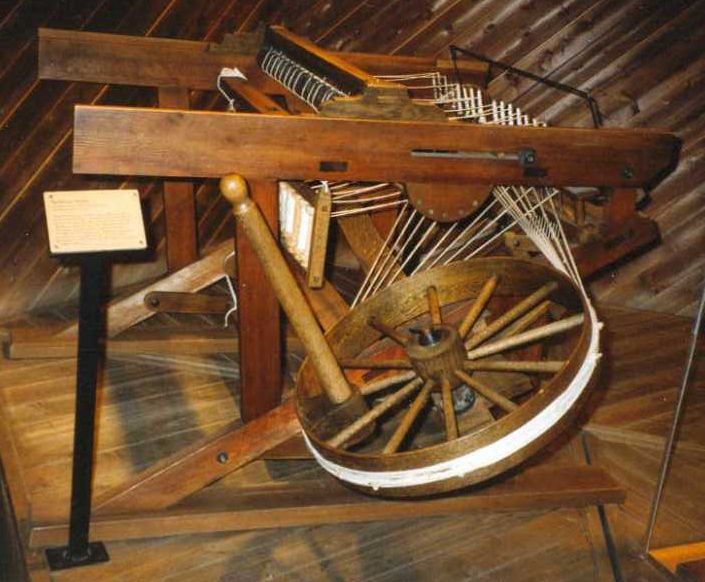· The Industrial Revolution – “a period from the 18th to the 19th century where major changes in agriculture, manufacturing, mining, transport, and technology had a profound effect on the socioeconomic and cultural conditions”
· Started in the UK and gradually spread outward throughout Europe, North America, and finally the world
· Nearly every aspect of daily life was influenced in someway
(A model of a Spinning Jenny, used to spin wool, which helped to start the Industrial Revolution)
· Textiles and mining were very important to Germany in the 18th century
· Because the country was divided into so many small states, it was not until after 1800 that the process of industrialisation began to really get underway
· The first German textile factory was built in Ratigen near Duesseldorf in 1784 – called “Cromford” after its English model, but very much on its own in Germany
· Textile manufacturing was first mechanized in Germany, mainly in established cities and trading centers like Aachen, Krefeld, and Saxony
· First German spinning machines were used in Chemnitz in 1782 and the town then became a pioneer in Engineering
· In Upper Silesia as well as the State of Prussia, the local aristocratic landowners had enough capital to invest
· Tests were made to lift water with the help of steam engines
· Coal-mining was expanded
· At the end of the 18th century, the first coke(low-ash, low-sulfur bituminous coal)-driven blast furnace was constructed in Gleiwitz
· Some areas of Germany, such as the area around the River Ruhr, remained rural, with only one ironwork factory
http://upload.wikimedia.org/wikipedia/commons/8/87/Spinning_jenny.jpg

No comments:
Post a Comment